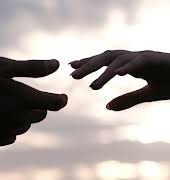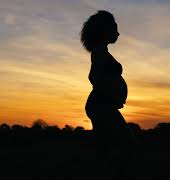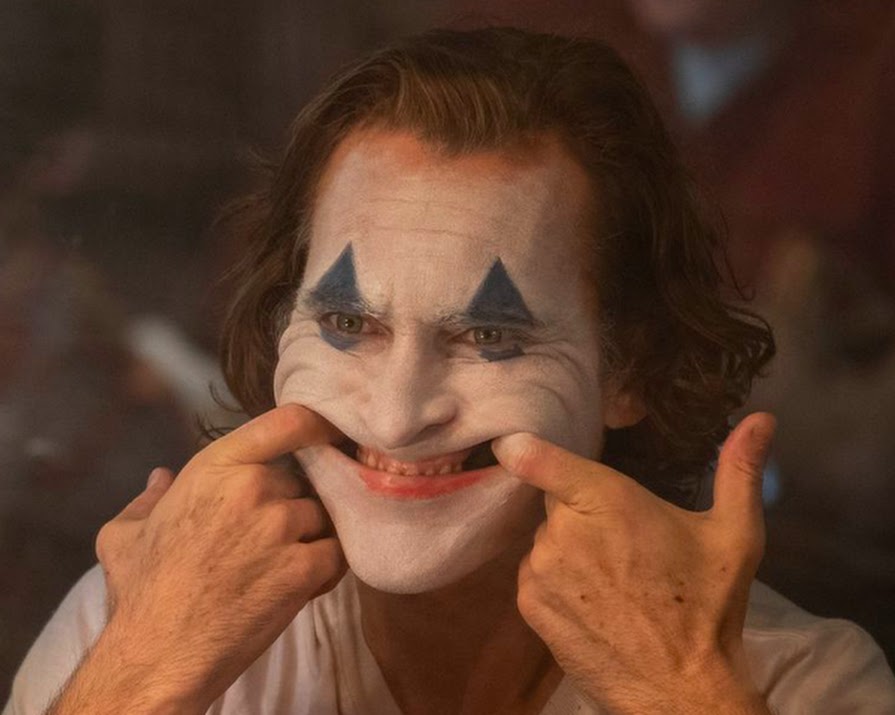
By Amanda Cassidy
18th Oct 2019
18th Oct 2019
Not only is Joker a cinematic triumph, a fascinating character study and seriously punchy drama, but its also a study on the effects of childhood trauma.
**Spoilers alert
It’s just a movie.
That was one of the main responses to those who feared that the new Joker origin story, directed by Todd Phillips was going to encourage lone wolf white males to shoot up cinema theatres.
There were reviews about the reviews of the reviews of this long-anticipated movie, which tells the story of Arthur (Joaquin Phoenix) and how he became the arch-nemesis of batman.
Invisible
And it wasn’t an easy watch.
Many admitted they walked out because of how hard it was to see the excruciating descent from mental illness into murderer. There was a lot said about this film, but not much about what I considered the main theme – that of child abuse.
We watch oblivious as Arthur’s sweet but confused mother writes desperately to super-rich mayor-wannabe Thomas Wayne begging for financial help. The audience cannot help but feel sorry for her as she focuses only on the good in her son, an aspiring clown who feels invisible in a grimy, crime-ridden metropolis.
Later in the movie, it transpires that not only is his mother delusional and narcissistic, but her actions are mostly responsible for the way Arthur became. We learn that Penny stood by while her boyfriend at the time abused Arthur throughout his childhood, chaining him to a radiator and leaving him without food where he was found by authorities aged just three.
His troubled mental state is further compounded by his disturbing laugh, that turns into hysterical crying and back to laughter again – a nervous tic he used as a coping mechanism to deal with the horrific circumstances of his childhood abuse.
Let down by the one person who was supposed to protect him – this is one damaged soul.
Darkness
Darkness has been passed down to her son. And while not everyone who is a product of childhood abuse and neglect turns into the monster that Arthur evolves into, there was certainly enough emphasis on the damage caused by such a childhood to merit conversations about it, as a theme, rather than a direct cause.
We know from psychological studies that the younger the child was at the time of the onset of the maltreatment, the more likely they are to experience problems later in life. The degree of severity of abuse or neglect, directly affects the likelihood of negative outcomes.
The Joker drags you back to Arthur’s past, it allows you to feel the devastation of a three year old boy who is unloved, unprotected and hurt so very badly. It is a wake-up call that much, much more can be done to help those children who live in fear and profound sadness all around us because of abuse and neglect.
Intervening earlier, stopping it, shining a light into those shadows would save countless people severe emotional trauma that they have to carry with them through out their lives. This is an uncomfortable journey about what happens when we allow this type of abuse to fester, unchecked, uncared for.
Failure
The WHO estimates that up to 1 billion minors between the ages of 2 and 17 years of age have endured violence either physical, emotional, or sexual.
Sexual abuse (from groping to rape), according to some UNICEF estimates from 2014, affected over 120 million children, representing the highest number of victims. In India, a child is sexually abused every 15 minutes. Human trafficking adds a further dimension of horror. An estimated 1.2 million children are trafficked each year.
Our collective failure to protect the most vulnerable among us is a disgrace. Absent in all of this is a sense of urgent action from the world at large. From the institutionalised cover-ups in the church to the victimisation of children in war zones, we are failing to protect children. We risk creating more troubled souls from the shadows of our society.
“The numbers are startling, the effects devastating”
Social fiction
I left the movie, Joker, with one solid thought – that we have to do more to prevent tiny vulnerable humans from cruelty, abuse and violence. Although it is ‘just a movie’, sometimes looking into the mirror of our social fiction that is the catalyst for conversations about uncomfortable themes. Why are we not talking about this more?
While the obvious choice in this case was mental illness and a society that kicks you when you are down, gun crime, depression and ‘madness’, we should also be focusing on the opportunity to highlight another vital topic, childhood abuse and neglect.
The numbers are startling, the effects devastating and every reminder that the world needs to protect more children, should be capitalised upon.
Feature image via Warner Bros
Read more: Why Joker isn’t the dangerous movie everyone thinks it is
Read more: Joker: Bleak and beautiful
Read more: The trauma of childhood sexual abuse
























